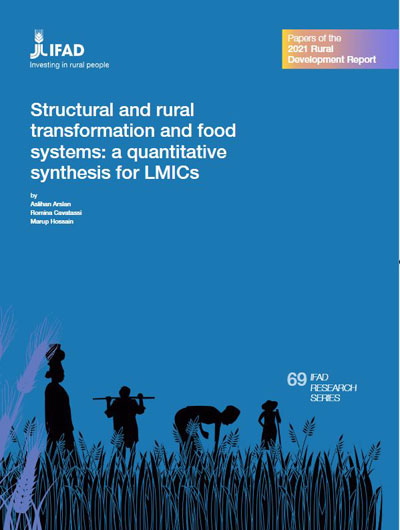Research Series 69: Structural and rural transformation and food systems: a quantitative synthesis for LMICs
Research Series 69: Structural and rural transformation and food systems: a quantitative synthesis for LMICs
Structural and rural transformation are intricately linked to food systems. Structural transformation captures a country’s level of dependence on agriculture, while rural transformation captures productivity in the agricultural sector. In particular, agri-food system and employment transitions influence structural and rural transformation and shape the spatial distribution of populations by influencing where people live, work and eat, all of which closely relate to food system transitions.
Using country-level data from 85 low- and middle-income countries (LMICs), this paper outlines a food systems index (FSI) and analyses the linkages between food systems and structural and rural transformation, as well as population distributions.
It also selects a number of policy-relevant variables from World Development Indicators and uses machine learning methodology to shed light on patterns related to institutions, female empowerment, infrastructure, and health.
The paper finds that countries in the lowest FSI group will see their youth populations more than double in the next 30 years, indicating that the food system investments of today will affect one third of global youth in the future. It also finds that structural transformation is a necessary but not sufficient condition for desirable food system outcomes. Rural transformation by itself without structural transformation is not enough either. For LMICs, broad development interventions are more important to progress food systems.

Authors
Aslihan Arslan, Romina Cavatassi, Marup Hossain
Citation
Arslan, A., Cavatassi, R., Hossain, M. 2022 “Structural and rural transformation and food systems: a quantitative synthesis for LMICs” IFAD Research Series 69. Rome: IFAD